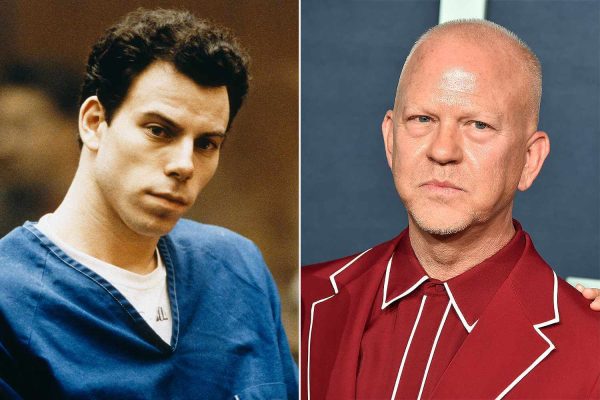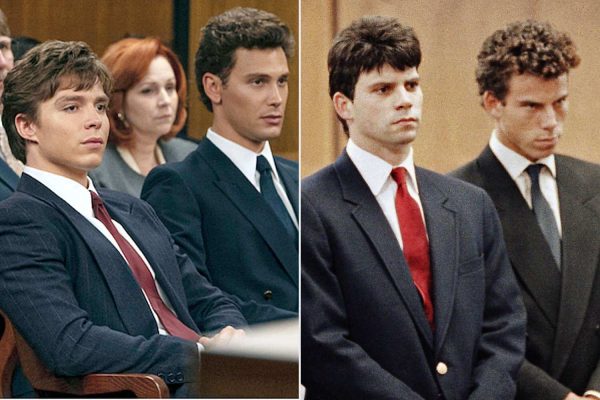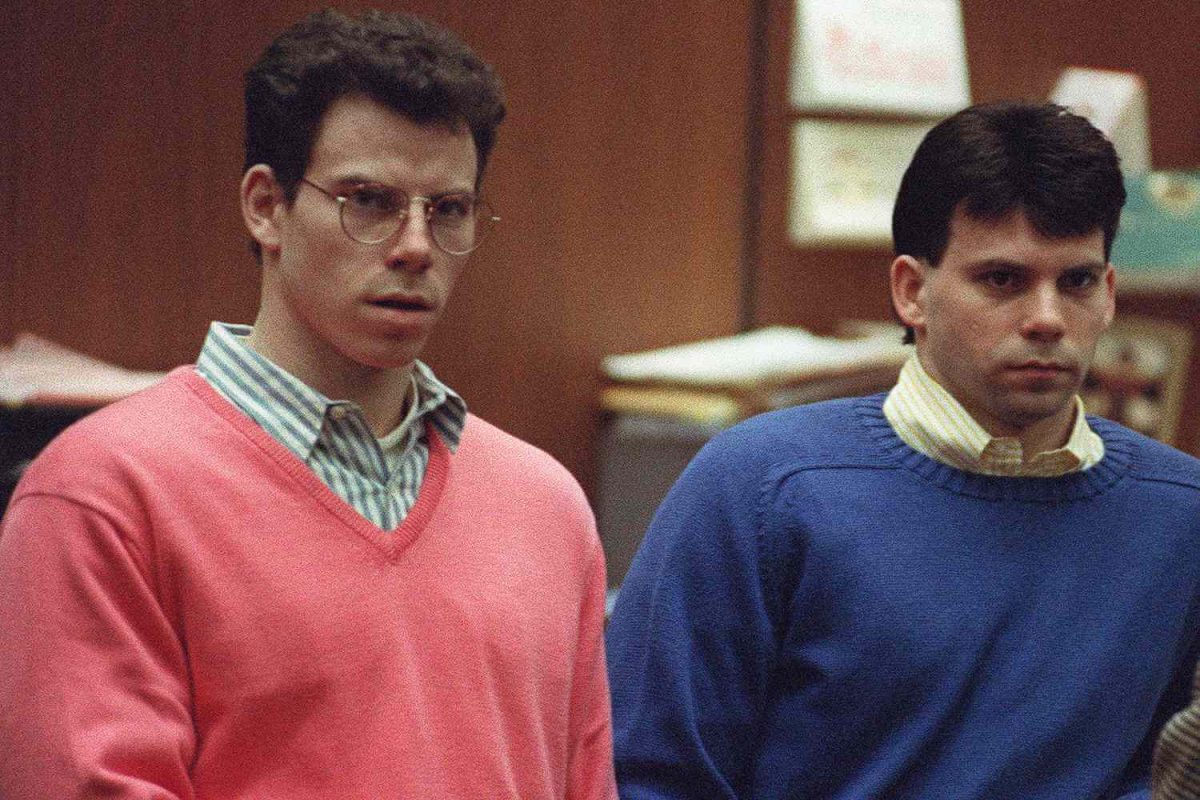World News
Erik Menendez Criticizes Ryan Murphy’s Monsters Series for Perpetuating False Narratives
1. The Menendez Brothers: A Case Revisited
The infamous Menendez brothers’ case has long been a focal point in American true crime lore. Erik and Lyle Menendez, convicted of murdering their parents in 1989, have spent decades behind bars, yet their story continues to captivate the public. The latest iteration of the Menendez saga comes courtesy of Ryan Murphy’s Monsters series, which focuses on the most notorious criminals in history. However, Erik Menendez has publicly criticized the series, accusing it of perpetuating lies and inaccuracies about him and his brother. This criticism reignites discussions about the ethics of true crime storytelling and the portrayal of real-life events in popular media.
Erik’s criticism of the Monsters series highlights the tension between entertainment and accuracy. For many, the Menendez case was clear-cut: two wealthy brothers murdered their parents for money. However, the brothers have consistently maintained that their actions were the result of years of abuse at the hands of their father. This defense, which was dismissed during their original trial, remains a contentious point of debate. By revisiting the case through the lens of Ryan Murphy’s dramatization, the Monsters series brings the Menendez brothers’ story back into the spotlight, but at the cost of what Erik believes to be a distortion of the truth.

2. Erik Menendez’s Criticism: Lies and Misinformation
In response to the Monsters series, Erik Menendez has taken issue with what he claims are outright lies about his and his brother’s lives and motivations. According to Erik, the series ignores key aspects of their defense, instead opting for a sensationalized version of events that paints the brothers in an overly negative light. One of Erik’s primary grievances is that the show minimizes the abuse they suffered at the hands of their father, José Menendez. Erik has long contended that their parents’ murders were the culmination of years of physical, emotional, and sexual abuse, which drove the brothers to commit the crime out of fear and desperation.
By focusing on the alleged financial motive and the brothers’ lavish lifestyle, Erik believes the series undermines the complexity of their story. For him, this portrayal reduces a multifaceted and painful narrative into a simple, exploitative tale of greed and patricide. His criticism speaks to a broader issue with how true crime is often presented in the media—focusing on salacious details while ignoring the psychological and emotional nuances of the people involved. This, according to Erik, does a disservice to the public’s understanding of the case and contributes to a continued misrepresentation of his and his brother’s motives.
3. The Ethics of True Crime Storytelling
Erik Menendez’s criticism of Monsters raises important ethical questions about the portrayal of true crime in popular media. True crime has become a hugely popular genre, with shows, documentaries, and podcasts offering audiences a glimpse into the darkest corners of human behavior. However, as the line between entertainment and journalism becomes increasingly blurred, so too does the responsibility of creators to remain truthful in their portrayals. In the case of the Menendez brothers, the dramatization of their lives has reopened wounds, particularly for Erik, who feels that his story is being twisted to fit a convenient narrative.
One of the key ethical dilemmas in true crime storytelling is the tendency to prioritize entertainment value over accuracy. In the case of Monsters, Erik Menendez believes that Ryan Murphy’s portrayal of the brothers leans heavily on the sensational aspects of their story—wealth, privilege, and violence—while glossing over the abuse allegations that were central to their defense. For Erik, this not only paints him and his brother as cold-blooded killers but also diminishes the real pain and trauma they experienced. The Menendez brothers’ case is a prime example of how complex human stories can be flattened and manipulated for entertainment, raising questions about how much artistic license should be allowed in retelling real-life events.

4. Ryan Murphy’s Monsters and Its Impact on Public Perception
The Monsters series, part of Ryan Murphy’s anthology of real-life crime stories, has received both praise and criticism for its bold storytelling and dramatic flair. While previous installments like Dahmer – Monster: The Jeffrey Dahmer Story have been lauded for their gripping performances, they have also been accused of exploiting tragedy for entertainment. With the Menendez brothers now in the spotlight, Murphy’s series has sparked renewed interest in the case, but at the cost of drawing ire from one of the convicted brothers themselves.
For Erik Menendez, the release of the Monsters series is not just about correcting inaccuracies but also about how these portrayals influence public perception. The Menendez brothers have long been vilified in the media, and Erik’s criticism of the show reflects his concern that the series will further entrench negative perceptions of him and his brother. Public opinion plays a significant role in how historical events are remembered, and for Erik, the portrayal of their story in Monsters feels like another blow to his efforts to reclaim some sense of narrative control.
Murphy’s series, like many true crime dramatizations, walks a fine line between creative interpretation and real-life events. While the show is undoubtedly compelling, Erik’s concerns point to the lasting impact such portrayals can have on the individuals involved. By reducing the complexities of the Menendez brothers’ case to a simple narrative of wealth, privilege, and violence, Monsters risks overshadowing the very real human suffering that underpinned their defense. In doing so, the show raises questions about the ethical responsibilities of creators when dealing with real-life stories that continue to affect those involved.
5. Revisiting the Menendez Case: Truth, Justice, and the Media
The Menendez brothers’ case remains one of the most talked-about criminal trials in American history, and the continued media attention on their story speaks to the enduring fascination with true crime. However, Erik Menendez’s criticism of Monsters also highlights the challenges of separating fact from fiction in a media landscape that prioritizes sensationalism. For Erik, the fight to have his story told truthfully is far from over, and the release of the Monsters series has reignited his desire to set the record straight.
At its core, Erik’s criticism of the series reflects a broader conversation about truth, justice, and media representation. The Menendez case, like many high-profile criminal cases, has been shaped by the media’s portrayal of the brothers as privileged, greedy killers. Yet, as Erik has long maintained, there is another side to the story—one rooted in trauma, abuse, and desperation. While the original trial failed to convince the public of their defense, Erik’s ongoing efforts to have their story understood in its full complexity remain an important part of the narrative.
The Monsters series has once again brought the Menendez brothers back into the public consciousness, but it has also sparked a debate about the ethics of true crime storytelling and the impact these portrayals can have on the lives of real people. For Erik Menendez, the battle to have his voice heard continues, as he seeks to challenge the lies and inaccuracies that have long defined his story. As the media continues to revisit and retell the Menendez brothers’ tale, Erik’s criticism serves as a reminder that behind every sensationalized true crime narrative are real people whose lives are forever altered by these portrayals.
From cathottees

